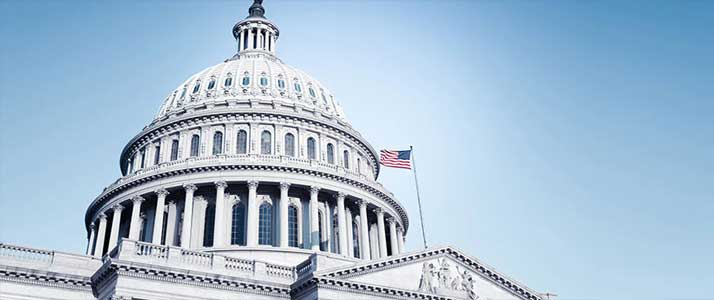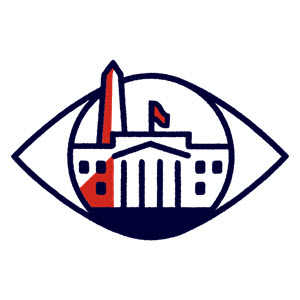CARES Act and FFCRA Provisions Expiring: May Require Action

Several provisions of both the CARES Act and the FFCRA that impact employers will expire at the end of 2020.
The Coronavirus Aid, Relief, and Economic Security ("CARES") Act (P.L. 116–136) was enacted on March 27, 2020, to provide economic stimulus and relief to employers and individuals that are dealing with the COVID-19 pandemic and its economic consequences.
The Families First Coronavirus Response Act ("FFCRA") (P.L. 116-127, March 18, 2020) generally requires public employers and private employers with fewer than 500 employees to provide specified paid sick and family leave to employees affected by COVID-19, and provides covered employers with a corresponding employment tax credit.
Several provisions of both the CARES Act and the FFCRA that impact employers will expire at the end of 2020. Some require action by employers.
CARES ACT
Employee Retention Tax Credit ("ERTC")
Section 2301 of the CARES Act provided that private-sector employers may receive a refundable tax credit against employer Social Security tax equal to 50 percent of qualifying wages paid, up to $10,000 per employee, for a maximum credit of $5,000 per employee. However, the credit is not available to employers who receive a Paycheck Protection Program ("PPP") loan (unless the employer repaid the PPP loan in full by May 18, 2020). To qualify, an employer's operation must have been at least partially suspended due to orders from a governmental authority limiting commerce, travel, or meetings due to COVID-19, or the employer must have experienced a 50 percent decline in gross receipts when compared to the same quarter of the prior year. The credit may be increased by the proportionate share of the employer's health-care costs related to such wages.
- For employers with more than 100 full-time employees, the credit is available for wages paid to employees for time that the employee is not providing services.
- For employers with 100 or fewer full-time employees, all wages qualify for the credit, without regard to whether the employer was in operation.
Aggregation rules apply in determining the number of employees of the employer. Wages may not include paid family and/or sick leave under the FFCRA or the Section 455 Paid Family and Medical Leave Credit for which a credit is taken. Additionally, employers may not claim the ERTC and the Work Opportunity Tax Credit for the same employee for the same period of time.
The credit only applies to qualifying wages paid in 2020 from March 13 through December 31. Pay dates after 2020 would not qualify for ERTC, even if otherwise-qualifying wages were earned (i.e., relevant hours were worked) in December. No action is required of ADP clients to discontinue accrual of otherwise-qualifying ERTC wages after 2020. ERTC earnings codes will be disabled.
Deferral of Employer Social Security Taxes
Section 2302 of the CARES Act enabled employers to defer payment of the employer share of the Social Security tax incurred beginning March 27, 2020, through December 31, 2020. Deferred tax amounts must be repaid in equal amounts due on December 31, 2021, and December 31, 2022.
No deferral is permitted on wages paid after 2020. However, the employer share of Social Security tax associated with wages paid in 2020 but due after January 1, 2021, may be deferred. No action is required of ADP clients to stop deferrals. ADP systems will automatically discontinue deferrals for any payrolls after 2020. For Tax Filing clients, employer Social Security taxes on wages paid after 2020 will automatically accrue and be collected and deposited with the Internal Revenue Service (IRS) as normal.
Paycheck Protection Program
Section 1102 of the CARES Act established the Paycheck Protection Program (PPP), which was intended to provide employers with funds to continue operations and payment of wages during the COVID-19 pandemic. PPP loans are 100 percent forgivable if certain measures are met, such as spending at least 60 percent of the proceeds on payroll costs and maintaining specified staffing and wage levels. Exceptions and special rules apply.
Depending when the loan was originated, borrowers may have eight or 24 weeks (the "covered period") in which to spend the funds in accordance with the program. Applications for forgiveness are not required until 10 months after the expiration of a borrower's covered period. No covered period may extend beyond 2020.
Many borrowers who received PPP loans have already completed their specified "covered period" and spent the PPP loan proceeds, and may be ready to submit the related forgiveness applications (SBA Form 3508, 3508EZ or 3508S). ADP clients can obtain the appropriate reports in their ADP solution and should gather other documentation demonstrating how PPP loan proceeds were used, including mortgage interest, rent payments and utilities.
Tax Exclusion for Employer Student Loan Repayment Benefits
Section 2206 of the CARES Act enabled employers to contribute up to $5,250 in 2020 toward student loan repayments for employees. Such payments would be excluded from the employee's income and employment taxes. The $5,250 cap applies to both the new student loan repayment benefit and any educational assistance under Section 127 of the Internal Revenue Code (IRC). This provision only applies to payments made by December 31, 2020.
FFCRA
The FFCRA required covered employers to provide specified paid sick and family leave to employees affected by COVID-19, and provides affected employers with a corresponding employment tax credit. These provisions are in place through December 31, 2020. However, qualified FFCRA leave wage payments and associated tax credits may occur in 2021, if the FFCRA leave was taken in 2020. For example, an individual on qualified FFCRA leave in the last week of December may be paid for such leave in 2021. The FFCRA leave payments related to the leave taken in 2020 still qualify for the associated FFCRA tax credit, which would be applied to 2021 employment tax liabilities and reported on IRS Form 941 for the quarter ended March 31, 2021.
For any pay period that includes both 2020 and 2021 earnings, employers may need to take action to separately distinguish any 2021 wage payments that represent payment for FFCRA leave taken in 2020, versus earnings for leave taken in 2021. Any otherwise-qualifying leave payments for periods after 2020 are not FFCRA leave payments, and no tax credit is allowed.
Because it is possible that 2021 wage payments may include 2020 FFCRA earnings, payroll systems will temporarily permit FFCRA earnings codes to be used in January. Employers will need to be careful not to apply FFCRA earnings codes to leave taken after 2020. Instructions on how to appropriately identify 2020 FFCRA leave paid in 2021 will be provided to ADP clients.
Future Legislation Could Extend Certain COVID Support Programs
Legislative proposals are being considered by Congress that may expand, simplify and/or extend certain of these programs. ADP will continue to closely monitor federal legislation and guidance affecting these important provisions.
ADP Compliance Resources
ADP maintains a staff of dedicated professionals who carefully monitor federal and state legislative and regulatory measures affecting employment-related human resource, payroll, tax and benefits administration, and help ensure that ADP systems are updated as relevant laws evolve. For the latest on how federal and state tax law changes may impact your business, visit the ADP Eye on Washington Web page located at www.adp.com/regulatorynews.
ADP is committed to assisting businesses with increased compliance requirements resulting from rapidly evolving legislation. Our goal is to help minimize your administrative burden across the entire spectrum of employment-related payroll, tax, HR and benefits, so that you can focus on running your business. This information is provided as a courtesy to assist in your understanding of the impact of certain regulatory requirements and should not be construed as tax or legal advice. Such information is by nature subject to revision and may not be the most current information available. ADP encourages readers to consult with appropriate legal and/or tax advisors. Please be advised that calls to and from ADP may be monitored or recorded.
If you have any questions regarding our services, please call 855-466-0790.
ADP, Inc.
One ADP Boulevard, Roseland, NJ 07068
adp.com
Updated on December 8, 2020



